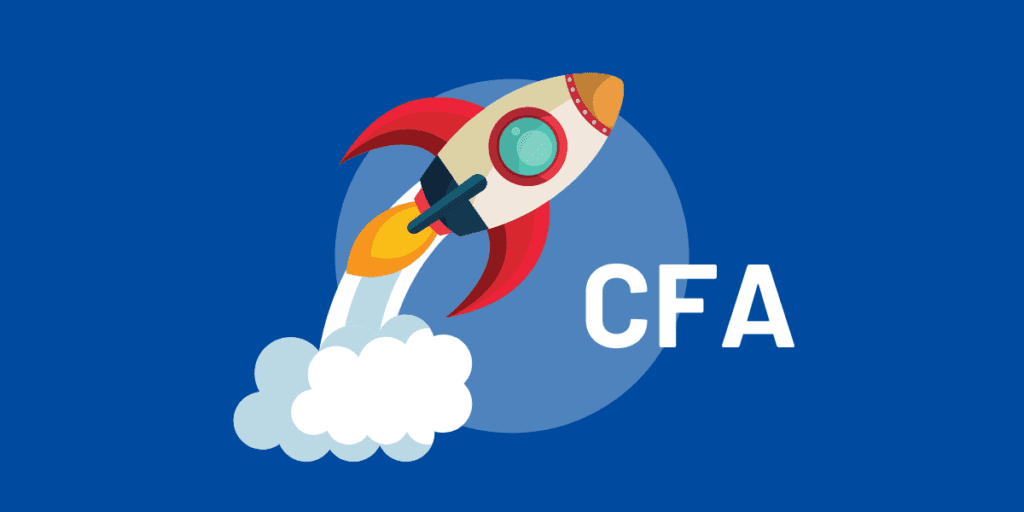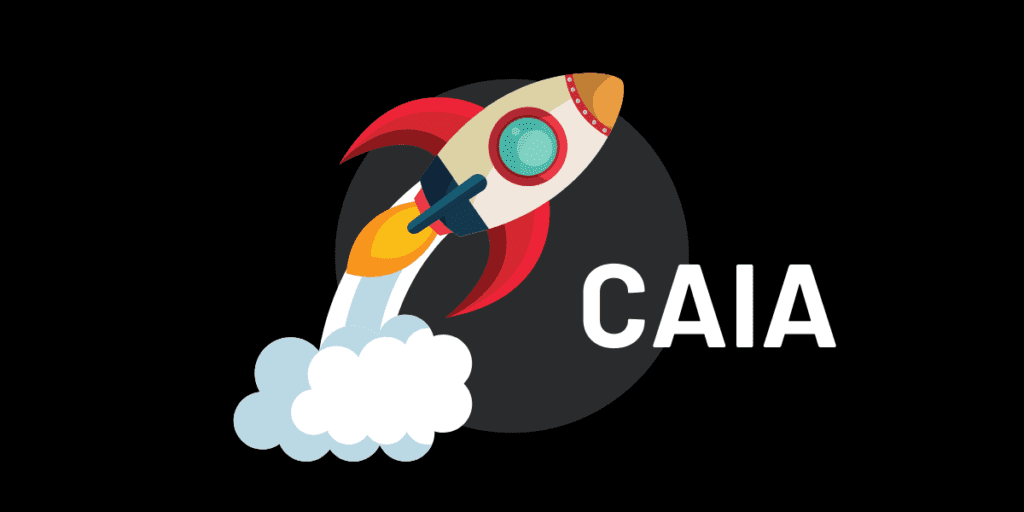We’ve had interesting discussions about CFA vs. MBA before, and whether it’s a worthwhile investment.
However, that’s not the only alternative qualifications many of us consider in our pursuit of career advancement. With the various finance professional qualifications available, it can be quite daunting at first when faced with so many unfamiliar acronyms.
In this article, I’ll demystify and compare a list of the best finance certifications. Although it’s like comparing apples and oranges, but it would give you a flavor of what qualifications suitable for your career goals and aspirations.
The good news? The best certification to choose depends on your career goals and the type of job you’re aiming for, since each of these qualifications are further specializations in their respective fields. Check it out!
CFA (Chartered Financial Analyst)

| Topic areas | Portfolio management, securities analysis, ethics, economics, financial accounting |
| Number of exams required | 3 Levels |
| Exam frequency | – CFA Level 1 is held 4x a year, with quarterly exam windows in February, May, August and November. – CFA Level 2 is held 3x a year in May, August and November. – CFA Level 3 is held 2x a year in Feb and August. |
| Designation requirements | – Pass all 3 CFA exams; – Get relevant work experiences; – Send 2-3 professional references; – Apply to CFA Institute to become a CFA Charterholder. More details on how to become a CFA charterholder here. |
| Exam fees and costs | US$ 350 one-off enrolment fee plus US$940-1,390 exam fee per Level, depending how early your register for the exams. We estimate the total cost of the CFA exam to be $3,220-8,270, assuming 3 consecutive passes with no travel & accommodation costs. |
| Related sectors | Investment analysis, portfolio management, securities research, pension, insurance, corporate finance |
| Pass rates | 22%-56% depending on each Level. See our CFA pass rates article for more details. |
| Number of CFA charterholders worldwide | 200,000+ |
Interested in finding out more about CFA designation? These related articles may be of interest:
- What Is CFA Exam? A Useful Beginner’s Guide
- 7 Benefits of CFA Charter That You Should Know
- CFA Career Paths: What Are Typical Roles of CFA Charterholders?
- CFA Exam Cost: How Much Does It Really Cost?
- CFA Exam Pass Rates: How Hard Are CFA Exams?
- CFA Passing Score: We Reveal Our Latest Estimates
- CFA Exam Exemptions: A Big Perk You Should Know
- Free Customizable CFA Study Planner – Get Yours Now
FRM (Financial Risk Manager)

| Topic areas | Risk modelling, market risk, credit risk, investment management risk, operational and integrated risk. |
| Number of exams required | 2 Parts |
| Exam frequency | For Part 1: May, August and November; For Part 2: May and December. |
| Designation requirements | – Pass both FRM papers; – a minimum of 2 years professional full-time work experience in the area of financial risk management or another related field; – maintain GARP membership |
| Exam fees and costs | US$400 one-off enrolment fee plus US$600-800 per paper depending on how early you register for the exams. We estimate the total cost of the FRM exams to be $2,150-3,648, assuming consecutive passes with no travel & accommodation costs. |
| Applicable sectors | Financial risk management |
| Pass rates | FRM Part I: about 40-50% FRM Part II: about 50-60% |
| Charterholders worldwide | 84,000+ |
If you’re interested in the FRM qualification, you may also be interested in these articles:
- The Beginner’s Guide to FRM: the Financial Risk Management Qualification
- CFA vs FRM – Which Is Better for Me?
- CFA and FRM: The Best Way to Get Both Quickly
- FRM vs PRM – Which Risk Management Qualification Is Better?
- FRM Fees: How Much Does It Really Cost?
- FRM Exam Pass Rates: How Hard Are FRM Exams?
- FRM Exam Preparation: 6 Tips to Help You Pass
- Free FRM Study Planner – Get Yours Now
CAIA (Chartered Alternative Investment Analyst)

| Topic area | Alternative assets, asset allocation, portfolio management, risk management |
| Number of exams required | 2 Parts |
| Exam frequency | Every March and September |
| Designation requirements | – Pass both papers; – hold a bachelor’s degree, or the equivalent, and have more than 1 year of professional experience, or alternatively have at least 4 years of professional experience; – provide 2 professional references; – abide by Member Agreement; – pay membership fees; |
| Exam fees and costs | Initial enrolment fee US$400 plus US$995-1,395 exam fee for each paper. We estimate the total cost of the CAIA exams to be $2,440-4,828, assuming consecutive passes with no travel & accommodation costs. |
| Applicable sector | Portfolio / fund management, asset allocation, consultant, marketer, risk manager, securities analyst |
| Pass rates | Level I: 56-81% Level II: 52-70% Given the wide historical range of pass rates, it’s best to refer to our CAIA historical pass rates and fully gauge its difficulty. |
| Charterholders worldwide | 11,000+ |
You can find more details and tips in these articles:
- The Beginner’s Guide to the CAIA Exams
- CAIA Stackable Program: Level 1 Exemptions for CFA Charterholder
- How Much Does CAIA Certification Cost? A Useful Estimate
- CFA vs CAIA: Which Is Superior? Or Do Both?
- Get Your Free Customizable CAIA Study Planner
CPA (Certified Public Accountant)

| Topic area | Financial reporting, auditing, financial accounting regulation. |
| Number of exams required | 4 sections |
| Exam frequency | All year round. Candidates can retake any section of the CPA exam within 24 hours. |
| Designation requirements | Requirements vary depending on which of the 55 US state jurisdictions you wish to be a licensed CPA in. But broadly speaking: – A bachelor’s degree with at least 150 credit hours; – A certain number of hours of accounting-specific studies; – Minimum age of typically 18-21; – Some states require a 6 months minimum residency; – Pass AICPA’s ethics exam as a minimum. For specific details of CPA requirements by US state, please refer to Boards of Accountancy’s website. |
| Exam fees and costs | Again, this varies by US state. We estimate the total cost of the CPA exams to be $1,500-3,500, assuming consecutive passes with no travel & accommodation costs. |
| Applicable sector | Accountancy |
| Pass rates | Overall 50-60% However, CPA pass rates are not comparable to CFA exams (for example) for various reasons. Check out our detailed comparison guide of CPA vs CFA to understand the nuances to fully gauge the difficulty of the exams. |
| Number of Licensed CPAs | 671,855 as of August 2024 |
CFP (Certified Financial Planner)

| Topic area | Financial planning process and principles, tax planning, income and retirement planning, estate planning, risk management and insurance. |
| Number of exams required | 1 |
| Exam frequency | March, July and November |
| Certification requirements | – Complete financial planning coursework through an accredited CFP program; – Pass CFP exam; – Minimum of bachelor’s degree; – 6,000 hours of professional experience related to the financial planning process, or 4,000 hours of apprenticeship experience that meets additional requirements; – Complete CFP’s ethics declaration and pass background check. |
| Exam fees and costs | Exam registration fee varies between $825-$1,025 depending how early you register. We estimate the total cost of the CFP exams to be $825-3,025, assuming a first-time pass. |
| Applicable sector | Retail and wealth management |
| Pass rates | Around 62% |
| Number of CFPs | 223,770 worldwide as of Feb 2024 |
If you’re interested in the CFP qualification, check out these related articles:
Best Finance Certifications: Which Should I Choose?

In short, it really depends on your career objectives and area of interest. If you’re still unsure, check out our Finance Career Quiz to have a better indication of what finance career suits your personality.
These finance certifications are the best in their respective fields in terms of recognition and value:
- CFA covers the broadest range of financial topics, adds value to a wide range of financial careers, in particular asset management and securities research –> a challenging qualification but offers the widest career options.
- CAIA is narrowly focused for the asset/fund management sector and it’s a useful addition if you’re in the sector already.
- FRM is also narrowly focused, globally recognized qualification for financial risk professionals –> great for risk management roles.
- CPA is a US-centric accountancy qualification, laser focused on financial reporting, auditing and regulation. As one would expect from a mandatory professional accountancy qualification. A great option for those interested in a stable, accountancy profession.
- CFP is a well recognized qualification for financial planning, gradually expanding its international footprint.
What’s your current situation and your career goals? Which finance qualifications are you considering? Let us know in the comment below!
Meanwhile, here are some related articles that may be of interest:
Why CWM is not included in the above list
Insightful article. Would you write about the ACI Financial Markets, and ACT certifications too?
It’s on our (long) list Hangoba Zulu! What certifications are you considering?
Hi Sophie, I can only imagine its length. I’m considering FRM and CFA in the long run, with either ACT or ACI for 2023.
Is it possible to write unit 1&2 of IMC in the same year?
Hi, I’ve responded to your identical question here https://www.300hours.com/articles/investment-management-certificate-guide